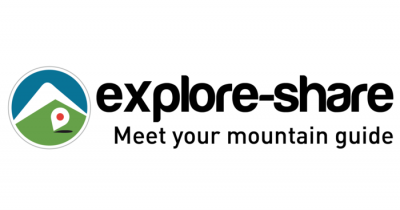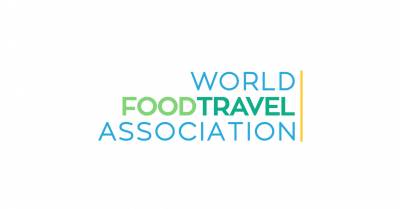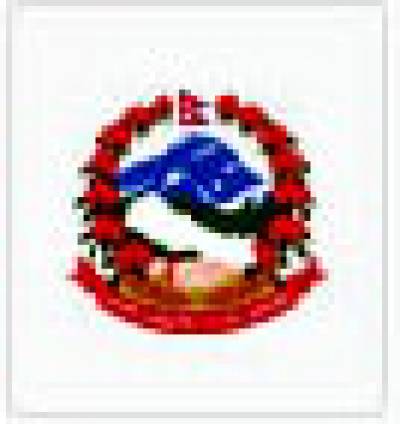MERA PEAK CLIMBING 17 DAYS
This is an excellent opportunity to climb Nepal’s highest peak without having to obtain a permit (6,476m/21,190ft). From the summit, you will have stunning views of several 8000m plus peaks, such as Everest, Cho Oyu, Kanchenjunga, Lhotse, and Makalu. You will also get to see and understand how the Sherpa villagers’ in this mountainous region live. This climbing trek allows you to enjoy numerous stops at teahouses, overnight camping plus a real climbing adventure. All this and more while trekking inside the Sagarmatha (Everest) National Park.
The journey begins with a short scenic mountain flight to Lukla followed by a trek through a number of Sherpa villages, noticeable by their Gompas (monasteries), chortens (engraved stones) and multi-colored Tibetan prayer flags. We will venture along more isolated and less trekked trails through the Hinku and Hunku valleys. We then head up to Mera Peak Base Camp, summit the peak and return with an adrenalin-pumped experience. Climbing Mera Peak is not a technical climb with slopes not exceeding 30 degrees. You will feel safe as fixed ropes will guide you to the summit following in your guide’s footsteps.
Accommodation is in teahouses during the trek right up until we get to Khare where we spend two nights in tented camps with the climbing crew (porters, cook, guide, and group leader). At Khare we will spend time acclimatizing, that is essential if climbing to higher altitudes such as Mera Peak. On the second day of the trek we will cross Zatra La Pass which is the most popular route to Mera Peak.
We will then return to Lukla and board a scenic flight back to Kathmandu. This is a great combination of trekking and climbing that takes you to the summit of a substantial peak – without the fuss of obtaining climbing permits. Mera Peak climbing is an ideal choice for anyone with moderate mountaineering knowledge and experience. The most challenging aspect of this trek is getting acclimatized. You will need only basic climbing skills, which our guide can assist you with prior to your ascent to the summit.
Note: Usually, this Mera peak climbing tour involves climbing the Central Mera Peak (6461m). There are two other faces of Mera Peak – North Mera (6476m) and South Mera (6064m). We can also operate climbing trips for these faces as per your request as well. Please do not hesitate to click the 'Make an Enquiry' if you have any questions.
ITINERARY
Day 1 : Arrival in Katmandu (1,300m/4,264ft) & transfer to hotel.
A representative from Sherpa Expedition and Trekking will meet you at Tribhuvan International Airport. You will then be taken to your hotel in Thamel, the tourist hub of Kathmandu.
Day 2 : Trip preparation day at Kathmandu.
Today we prepare for this exciting adventure which includes meeting your guide, checking necessary climbing equipment and a tour briefing. The remainder of the day is yours to explore Kathmandu or wander around Thamel. Breakfast included.
Day 3 : Fly to Lukla, trek to Paiya (Chutok) (2,730m/8,956ft) Duration: 5-6 hours.
Today we take an early morning scenic flight from Kathmandu to Lukla, the gateway to the Khumbu and Everest regions. From Lukla, we follow a trail heading east through thick forest on a hillside below the Kalo Himal Ridge. We will eventually arrive at Paiya where we will stay overnight.
Day 4 : Trek from Paiya to Pingkongma (2,846m/9,337ft) Duration: 5-6 hours.
Today descend and cross a bridge and continue on to Kari La Pass. We will pass through low shrub and bamboo forest while looking down at the Dudh Koshi Valley and river. We continue until we arrive at the farming village of Pingkongma where we will stay overnight.
Day 5 : Pangkonma to Ningsow (2,863m/9,393ft) Duration: 5-6 hours.
Leaving Pingkongma we head to Pingkongma La Pass and then climb up heading on a trail to the north. Along the way, we cross Peseng Kharka Khola (river) and pass Kharka Danda. We cross the Ningsow Khola (river) before arriving at Ningsow Village where we will stay overnight.
Day 6 : Ningsow to Chhatra Khola (3122 m /10,243 ft.) Duration: 7-8 hours.
From Ningsow we head up to Ramailo Danda from where we have views of Mera Peak. We then follow the trail as it heads through the Makalu Barun Park. We will follow the Pasang Lhamu trail until we reach our overnight destination of Chhatra Khola.
Day 7 : Chhatra Khola to Kothe (3,691m/12,109ft) Duration: 6-7 hours.
We head north on the trail to Mera Peak. We then arrive at the Majang Khola (river) where the trail merges with another that leads to Hinku Khola. We then continue to Tashing Ongma and then cross the bridge over the Sanu Khola before reaching Kothe where we will stay overnight.
Day 8 : Kothe to Thaknak (4,358m/14,297ft) Duration: 3-4 hours.
We follow the trail along the banks of the Hinku Khola with Mera Peak directly above. We will stop for lunch at Gondishung, a small settlement for cattle and yak grazing. We pass a 200-year-old Lungsumgba Gompa (monastery) before arriving at Thangnak where we will stay overnight.
Day 9 : Thaknak to Khare (4900m) Duration: 2-3 hours.
Leaving Thagnak we head to Khare and along the trail have views of Charpate Himal. The trail ascends across moraines to the base of the Hinku Nup (valley glacier) and Shar glaciers. After reaching Khare we can see the north face of Mera Peak. We will stay here the night
Day 10 : Khare: acclimatization and pre-climb coaching.
Today we have a day set aside to acclimatize, something that cannot be overlooked. Health professionals recommend staying active during this time. Your guide will also go over some tips on climbing to Mera Peak and the use of an ice axe, harness, ascenders, and crampons. We will stay overnight at Khare.
Day 11 : Khare to Mera High Camp (5,780m/18,958ft) Duration: 6-7 hours.
We cross a rocky terrain to reach Mera Peak Base Camp. We then continue through Mera La Pass to reach Mera High Camp. Once at High Camp, we will have some amazing views of Mt. Everest, Makalu, and Cho Oyu, Nuptse, Chamlang, and Baruntse. We will stay here overnight.
Day 12 : Mera High Camp to Summit (6,461m/21,1907ft) and back to Khare (5045m/16,547ft) Duration: 8-9 hours.
This is the big day as we head off to the summit. We will be up real early in order to reach the summit with time enough to return to High Camp and Khare. The early morning light on the snow-capped peak is stunning. From the summit, we have spectacular views of Mt. Everest (8,848m), Cho-Oyu (8,210m), Lhotse (8,516m), Makalu (8,463m), Kanchenjunga (8,586m), Nuptse (7,855m), Chamlang (7,319m), Baruntse (7,129m) and other peaks. We will then head back to Khare for the night.
Day 13 : Khare to Kothe (3600m/11808ft) Duration: 4-5 hours.
Today we follow the trail back from Khare to Kothe. We will celebrate the success of our climb once back at Kothe where we will stay the night.
Day 14 : Kothe to Thuli Kharka (4,300 m/14,107ft) Duration: 5-6 hours.
We head off today and ascend to Thule Kharka passing a Chorten just before coming to the village. We will stay here overnight.
Day 15 : Thuli Kharla to Lukla via Zatrwa La pass (4,600 m/15,091ft) 6-7 hours.
Today we cross Zatrwa-La Pass from where we can look down toward Lukla while surrounded by Cho Oyu, Kongde Peak, and other snow-covered peaks.
Day 16 : Fly back to Kathmandu (1,350m) Duration: 30 Minutes flight.
We will take an early morning scenic flight from Lukla back to Kathmandu. You will be transferred to the hotel after landing at the airport. You can either rest at the hotel, wander around Thamel or visit historic sites in Kathmandu Valley.
Day 17 : Transfer to The International Airport for your final Departure.
A representative from Sherpa Expedition & Trekking will take you to the airport at least three hours prior to your scheduled departure. You will take back home some great memories of your climbing experience in Nepal. On your flight home, you can plan another adventure to the famous Himalayas in Nepal.
SERVICES
Costs included in your package.
- Airport picks up and transports by private Car/Jeep.
- Three night’s standard twin sharing Hotel in Kathmandu with breakfast.
- Three meals a day (Breakfast, lunch, and dinner) during the trek.
- Fresh fruit every evening after dinner.
- Trekking Lodge (Tea House) during the trek and tent camp accommodation during climbing session.
- All necessary paperwork including Makalu Barun National Park Pemit Entry fees.
- Kathmandu-Lukla-Kathmandu (Ramechhap -Lukla- Ramechhap) flight with private airport transfer and domestic airport tax.
- A highly experienced, helpful, knowledgeable, friendly, English speaking well trained, Government license holder guide with all his salary, food, drinks, accommodation, transport and insurance.
- Climbing permit of Mera Peak.
- Strong, helpful Sherpa porters with proper safety equipment and walking equipment, his salary, food, accommodation, and insurance (one porter for two people).
- Comprehensive medical supplies (first aid kit will be available).
- Arrangement of emergency helicopter service (paid by your Travel Insurance Company).
- Use of sleeping bag, down jacket, duffel bag and walking poles (if you don’t have your own, to be returned after trip completed).
- Sherpa Expedition and Trekking T-shirt
- Government taxes and official expenses.
- Trip achievement certificate after successful trip completion.
- Oxygen meter to check your pulse and oxygen saturation and heart rate twice daily (Very useful to check Altitude Mountain Sickness(AMS) symptoms) which will ensure your health during the trek.
- Assistant guide for groups of 8 or more people.
Costs Exclude
- Meals whilst you are in Kathmandu - lunch, and dinner.
- Nepal entry visa fee (easy to obtain the visa on arrival at Tribhuvan International Airport – Kathmandu). $30 USD for 15-day, $50 USD for 30 Days, and $125 USD for 90 Days visa.
- Personal travel and medical insurance.
- International airfare.
- Your personal expenses.
- All the alcoholic and nonalcoholic, soup, tea, coffee, hot chocolate, cocoa, mineral water, extra food, cold and hot drinks on trek ( i.e. those you choose to purchase along the way and during evenings in the tea houses)
- All desserts & sweet things like chocolate, cake, pie, pudding.
- Hot shower and battery charging at the tea houses.
- Tips for the guide, porter, and driver (tipping is expected)
- Excess baggage of more than 10 kg for Lukla flight.
- NOTE: If you return earlier from the trek due to sickness or any problem, the money you paid for the flight, hotel, mountain room, food, etc. is nonrefundable, and you will need to bear the expenses for the hotel, food, etc. in Kathmandu yourself.
EQUIPMENTS
You will be carrying all of your gear and share some of the cluster gear. Keeping your pack light is important, so choose light-weight clothing and equipment. Be sure to have a range of clothing suitable for all conditions. Sudden change of weather may require layering of clothing. Three layers will meet your needs. Avoid cotton or fabrics that do not maintain heat when cold. Comfortable durable wool (or proven fabrics) that breathe and expel sweat lends itself to an additional pleasant experience!'
We will offer complimentary water and a windproof duffle that you'll use on the trek - carried by porters. The duffle is yours to keep once at the end of the trek. You can safely leave your bag, together with your non-trekking requirements, at our office in Katmandu and collect them upon your return.
All equipment, such as base camp tents, room accessories, climbing rope, ice screws, snow bar and ice hammer is provided by Sherpa Expedition & Trekking.
Upper Body:
- Base Layers: Moisture-wicking and quick-drying shirts and thermal tops.
- Insulation Layers: Fleece or down jackets to provide warmth.
- Waterproof Shell Jacket: A durable and breathable jacket to protect against wind and rain.
- Softshell Jacket: A lightweight and water-resistant jacket for added protection.
- Climbing Harness: A comfortable harness to secure yourself to the rope.
- Helmet: A strong and well-fitting helmet to protect your head from falling objects.
- Gloves: A combination of lightweight liner gloves and insulated gloves or mittens for warmth and dexterity.
- Buff or Neck Gaiter: To protect your neck and face from cold and wind.
- Sunglasses: Polarized and UV-protected sunglasses to shield your eyes from the sun and snow glare.
- Goggles: Ski or mountaineering goggles for added eye protection in extreme weather conditions.
Lower Body:
- Base Layers: Moisture-wicking and quick-drying thermal bottoms.
- Insulation Layers: Fleece or insulated pants for added warmth.
- Waterproof Shell Pants: Durable and breathable pants to protect against wind, rain, and snow.
- Softshell Pants: Lightweight and water-resistant pants for added protection.
- Mountaineering Boots: Sturdy and insulated boots designed for snow and ice.
- Crampons: Attachable spikes that provide traction on icy terrain.
- Gaiters: Waterproof and breathable gaiters to keep snow out of your boots.
- Socks: A combination of moisture-wicking liner socks and thick, warm mountaineering socks.
Other Essential Items:
- Backpack: A spacious and sturdy backpack to carry your climbing gear and personal belongings.
- Sleeping Bag: A warm and lightweight sleeping bag that can withstand sub-zero temperatures.
- Trekking Poles: Adjustable trekking poles for added stability and support.
- Headlamp: Essential for climbing in low-light or dark conditions.
- Water Bottles: Insulated water bottles to keep your water from freezing.
- Sunscreen: High SPF sunscreen to protect your skin from the strong sun at high altitudes.
- First Aid Kit: A comprehensive first aid kit with essential medications and supplies.
- Climbing Snacks: Energy bars, nuts, and other lightweight snacks for quick fuel during the climb.
It is important to invest in high-quality gear and ensure that everything fits properly and is in good condition. Additionally, consult with experienced climbers or a professional guide to ensure you have all the necessary gear and receive proper training on how to use it effectively and safely.
GOOD TO KNOW
Mera Peak is one of the popular trekking peaks in Nepal, standing at an elevation of 6,476 meters (21,247 feet). Here are some important details about Mera Peak climbing:
1. Location: Mera Peak is located in the Khumbu region of Nepal, in the Solu-Khumbu district. It lies in the vicinity of the Everest region.
2. Difficulty Level: Mera Peak is considered a moderately difficult climb. It requires a good level of physical fitness and previous trekking experience is recommended. Some technical climbing skills may be required, especially towards the summit.
3. Permits: As with any climbing expedition in Nepal, you will need to obtain climbing permits. For Mera Peak, you will need a climbing permit issued by the Nepal Mountaineering Association (NMA) and a Sagarmatha National Park permit.
4. Route: The most common route for Mera Peak climbing is the Mera La pass route. The journey begins with a flight from Kathmandu to Lukla, followed by a trek to Mera Peak Base Camp via various villages like Paiya, Pangkongma, and Khare. The summit push is usually made from High Camp (5,800 meters).
5. Duration: The typical duration for Mera Peak climbing is around 18-20 days, including acclimatization days and trekking to and from Lukla.
6. Accommodation: During the trek, you will stay in teahouses or lodges available in the villages along the route. However, at higher altitudes, you will need to set up tents for camping.
7. Best Time to Climb: The best time to climb Mera Peak is during the spring (March-May) and autumn (September-November) seasons. These months offer stable weather conditions and clear views of the surrounding mountains.
8. Safety: Climbing Mera Peak requires proper acclimatization and preparation. It is advised to climb with an experienced guide or join a reputable trekking agency that provides experienced guides and necessary equipment.
9. Equipment: Some essential climbing equipment required for Mera Peak climbing includes crampons, ice axe, harness, helmet, ropes, and proper clothing suitable for high altitude conditions. It is recommended to rent or buy these items in Kathmandu before starting the trek.
10. Fitness Requirements: Good physical fitness is essential for Mera Peak climbing. Regular cardio exercises, strength training, and hiking in similar terrain can help prepare your body for the climb.
Remember, Mera Peak climbing is a challenging adventure that requires proper planning, preparation, and guidance. It is always recommended to consult with experienced climbers or trekking agencies for more detailed and up-to-date information.
MAP
PHOTOS/Videos
Departures
Select a departure month
Fill out the form below and a Travel Expert will reach out to create your perfect tour.
FAQS
How difficult is Mera Peak climbing?
Mera Peak is considered a moderately difficult climb. It requires a good level of physical fitness and previous trekking experience is recommended. Some technical climbing skills may be required, especially towards the summit.
Do I need any climbing experience to climb Mera Peak?
While previous climbing experience is not mandatory, it is highly recommended to have prior trekking experience at high altitudes. Basic mountaineering skills such as using crampons, ice axe, and ropes are essential. It is advisable to climb with an experienced guide or join a reputable trekking agency that provides skilled guides.
What permits do I need for Mera Peak climbing?
You will need a climbing permit issued by the Nepal Mountaineering Association (NMA) and a Sagarmatha National Park permit. These permits can be obtained through a registered trekking agency or the NMA office in Kathmandu.
What is the best time to climb Mera Peak?
The best time to climb Mera Peak is during the spring (March-May) and autumn (September-November) seasons. These months offer stable weather conditions, clear views, and favorable climbing conditions. However, it is important to check the weather forecast before starting the climb.
How long does it take to climb Mera Peak?
The typical duration for Mera Peak climbing is around 10-20 days. This includes acclimatization days, trekking to and from Lukla, and the summit push.
What kind of accommodation is available during the climb?
During the trek, you will stay in teahouses or lodges available in the villages along the route. However, at higher altitudes, you will need to set up tents for camping. Teahouses provide basic facilities such as beds, meals, and toilets, while camping requires carrying your own camping equipment.
Is it safe to climb Mera Peak?
Climbing Mera Peak requires proper acclimatization and preparation. It is advised to climb with an experienced guide or join a reputable trekking agency that provides experienced guides and necessary equipment. Safety measures, such as regular health check-ups, proper acclimatization, and emergency evacuation plans, should be in place.
What equipment do I need for Mera Peak climbing?
Some essential climbing equipment required for Mera Peak climbing includes crampons, ice axe, harness, helmet, ropes, and proper clothing suitable for high altitude conditions. It is recommended to rent or buy these items in Kathmandu before starting the trek.
Can I climb Mera Peak solo?
While it is possible to climb Mera Peak solo, it is highly recommended to climb with an experienced guide or join a reputable trekking agency. Climbing with a guide ensures safety, proper guidance, and assistance in case of any emergencies.
Can I rent climbing equipment in Nepal?
Yes, you can rent climbing equipment in Kathmandu. There are several shops and rental agencies that provide climbing gear on a daily or weekly basis. However, it is important to check the condition and quality of the equipment before renting.
Latest Traveller’s Reviews
Travel experiences of our clients who recently returned from their trips.
100%
Based On 4 Reviews
JeriCarroll Revoir
Australia
January 3, 2024
Seamless Planning and Execution by Sherpa Expedition
Sherpa Expedition impressed us with their exceptional organizational skills. The entire trip, from transportation arrangements to accommodation and meals, was well-organized and efficiently executed. We were able to focus solely on the climb, knowing that every detail was taken care of.
Jeffrey Hochhalter
Australia
June 28, 2023
A Remarkable Journey to Mera Peak
We recently embarked on an incredible journey to Mera Peak with Sherpa Expedition, and it was truly a remarkable experience. From the very beginning, the trip was well-organized and professionally executed, leaving us with nothing but praise for the team at Sherpa Expedition.
Raymond M. Gill
Australia
March 28, 2023
Expert Guides and Supportive Crew
Sherpa Expedition provided us with expert guides who were not only knowledgeable about the route but also incredibly supportive throughout the journey. They encouraged and motivated us every step of the way, making us feel confident in our abilities and pushing us to reach new heights.
People Considering This Package Right Now Check availability
























